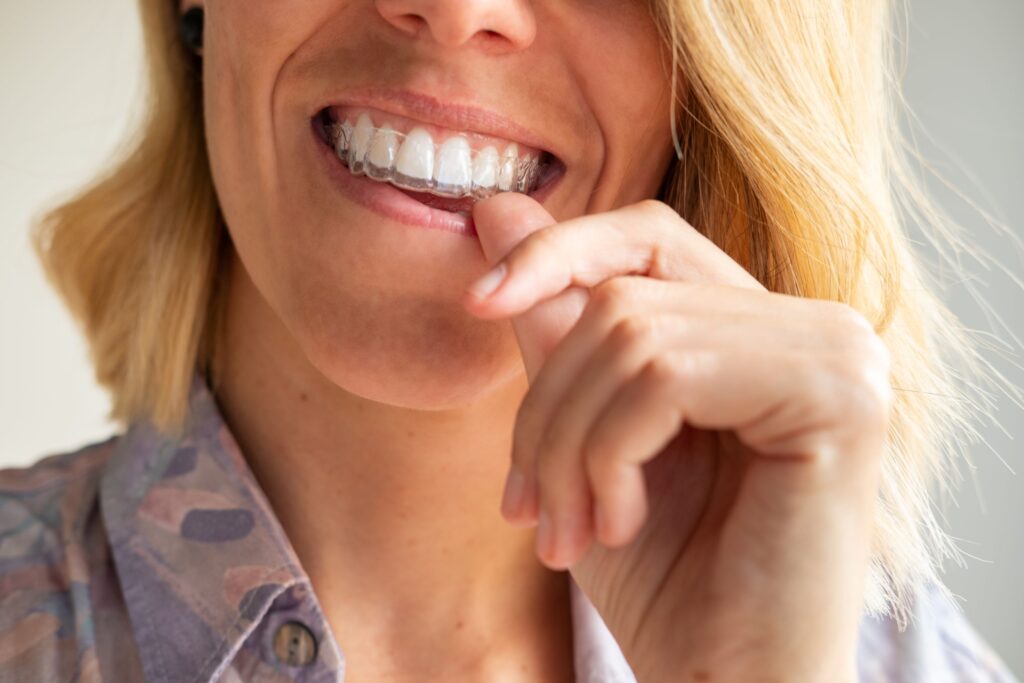
Invisalign continues to gain popularity as a more discreet alternative to traditional braces because the clear aligners are more aesthetically pleasing. However, if you suffer from chronic teeth grinding (bruxism), it’s natural to wonder whether your condition hinders your ability to complete this treatment successfully. You might hesitate to proceed if you’re concerned that your condition would ruin the aligners, for example.
If you’re struggling to make an informed decision regarding the future of your smile, continue reading to learn more about whether bruxism precludes you from getting Invisalign!
What is Bruxism?
This refers to a condition in which you frequently or constantly clench your teeth together. Although this can happen during the day, it’s more likely to occur subconsciously at night while you’re sleeping. Several factors like anxiety, genetics, sleep disorders, allergies, or certain prescription medications can cause it.
How Does Bruxism Impact My Teeth?
Chronic teeth grinding can potentially negatively affect your oral health in the following ways:
- Excessively wearing down your enamel, leaving you vulnerable to decay, damage, and disease.
- Toothaches, headaches, ear aches, or facial pain.
- Pain when chewing.
- A clicking sound when you open or close your mouth.
- Overcrowded or gapped teeth that may have been pushed out of alignment.
- TMJ (temporomandibular joint) disorders, like a stiff or locked jaw.
- Difficulty sleeping.
- Loose or shortened teeth.
Can I Get Invisalign with Bruxism?
Many patients who are eager to straighten their smiles hesitate to get Invisalign if they grind their teeth frequently. After all, this treatment is considered cosmetic, so most dental insurance policies don’t cover the cost. It’s normal to want to avoid paying for a treatment that you can’t effectively complete.
Thankfully, your bruxism doesn’t have to stop you from getting Invisalign! Although you may wear down the clear trays more quickly, you’re not likely to crack or break the plastic material. Plus, they’re only intended to be worn for one or two weeks anyway. Then, your dentist provides a new set for you to wear to account for the ongoing movement of your teeth.
Furthermore, you must wear the trays for 22 hours daily, meaning they’ll be in your mouth at night. They often function like a nightguard to separate your upper and lower arches while clenching at night. This allows your jaw muscles to relax and reduces the wear and tear on your enamel.
Not only can you undergo Invisalign treatment despite your teeth-grinding habit, but in some cases, it can even help you overcome it!
About the Author
Dr. Gus Bal takes pride in helping people of all ages build and maintain happy, healthy smiles. He earned his dental degree from Boston University’s Goldman School of Dental Medicine and then completed an Implant Dentistry fellowship at New York University. Now, he offers a wide range of services to meet all your needs conveniently under one roof, including cosmetic services. He combines a commitment to excellence with state-of-the-art equipment to devise and implement accurate, long-lasting solutions. If you’re interested in Invisalign, you can request a consultation on the website or call (613) 727-0990.
